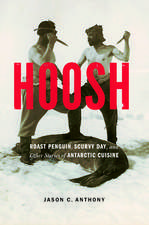Between Philosemitism and Antisemitism: Defenses of Jews and Judaism in Germany, 1871-1932
Autor Alan T. Levensonen Limba Engleză Paperback – 30 iun 2013
Levenson takes an interdisciplinary look at fiction, private correspondence, and published works defending Jews and Judaism in early twentieth-century Germany. He reappraises the missionary Protestant defense of Judaism and advocacy of Jewry by members of the German peace movement. Literary analysis of popular novels with positive Jewish characters and exploration of the reception of Herzlian Zionism further illuminate this often overlooked aspect of German-Jewish history.
Between Philosemitism and Antisemitism reveals the dynamic process by which a generally despised minority attracts defenders and supporters. It demonstrates that there was sympathy for Jews and Judaism in Imperial and Weimar Germany, although its effectiveness was limited by the values of a bygone era and scattered across the political and social spectrum.
Levenson’s new afterword vividly surveys the past decade of philosemitism studies, and in a reading of Die Weltbühne, Weimar Germany’s most celebrated leftwing intellectual journal, he justifies the widely contested term of philosemitism.
Preț: 180.44 lei
Nou
Puncte Express: 271
Preț estimativ în valută:
34.53€ • 36.15$ • 28.57£
34.53€ • 36.15$ • 28.57£
Carte tipărită la comandă
Livrare economică 05-19 aprilie
Preluare comenzi: 021 569.72.76
Specificații
ISBN-13: 9780803245761
ISBN-10: 0803245769
Pagini: 230
Ilustrații: 1 appendix
Dimensiuni: 152 x 229 x 15 mm
Greutate: 0.34 kg
Editura: Nebraska Paperback
Colecția University of Nebraska Press
Locul publicării:United States
ISBN-10: 0803245769
Pagini: 230
Ilustrații: 1 appendix
Dimensiuni: 152 x 229 x 15 mm
Greutate: 0.34 kg
Editura: Nebraska Paperback
Colecția University of Nebraska Press
Locul publicării:United States
Notă biografică
Alan T. Levenson holds the Schusterman Professorship for Jewish Intellectual and Religious History at the University of Oklahoma and is the author of An Introduction to Modern Jewish Thinkers: From Spinoza to Soloveitchik and The Making of the Modern Jewish Bible: How Scholars in Germany, Israel, and America Transformed an Ancient Text.
Cuprins
Preface
Acknowledgments
Part 1. Philosemitism in the Public Arena
1. Philosemetic Discourse in Imperial Germany
2. The German Peace Movement and the Jews
3. The Problematics of Philosemetic Fiction
4. Missionary Protestants and the Defense of Judaism
Part 2. Philosemitic Tendencies and Individuals
5. The Gentile Reception of Herzlian Zionism
6. Christian Author, Jewish Book?
7. An Adventure in Otherness
8. The Apostate as Philosemite
Appendix: The Case for Philosemitism
Afterword
Acknowledgments
Part 1. Philosemitism in the Public Arena
1. Philosemetic Discourse in Imperial Germany
2. The German Peace Movement and the Jews
3. The Problematics of Philosemetic Fiction
4. Missionary Protestants and the Defense of Judaism
Part 2. Philosemitic Tendencies and Individuals
5. The Gentile Reception of Herzlian Zionism
6. Christian Author, Jewish Book?
7. An Adventure in Otherness
8. The Apostate as Philosemite
Appendix: The Case for Philosemitism
Afterword
Notes
Selected Bibliography
Source Acknowledgments
Index
Selected Bibliography
Source Acknowledgments
Index
Recenzii
“Whether addressing voices in the German peace movement, authors of works of fiction, missionaries, or supporters of Herzlian Zionism, Levenson detects a common thread of otherness preventing any mutually constructive German-Jewish symbiosis from emerging. In the shadow of the Holocaust, Levenson demonstrates that all shades of anti-semitism were present in the German culture . . . the complex matrix of social interaction that made the Holocaust possible.”—D. A. Meier, Choice
“A vigorous defense of philosemitism as a moral and intellectual category in the history of German-Jewish relations from Bismarck to Hitler.”—Central European History
“Levenson presents a balanced picture that is neither apologetic of the German intellectual tradition nor indulges in the simplistic construction of an antisemitic German ‘national character.’ . . . The book is very interesting throughout, carefully argued and documented, and well-written. It should be widely read.”—Marcel Stoetzler, German Studies Review
“Levenson’s analysis is penetrating and his conclusions . . . are well worth considering.”—Daniel J. Rettberg, Association of Jewish Libraries Newsletter







